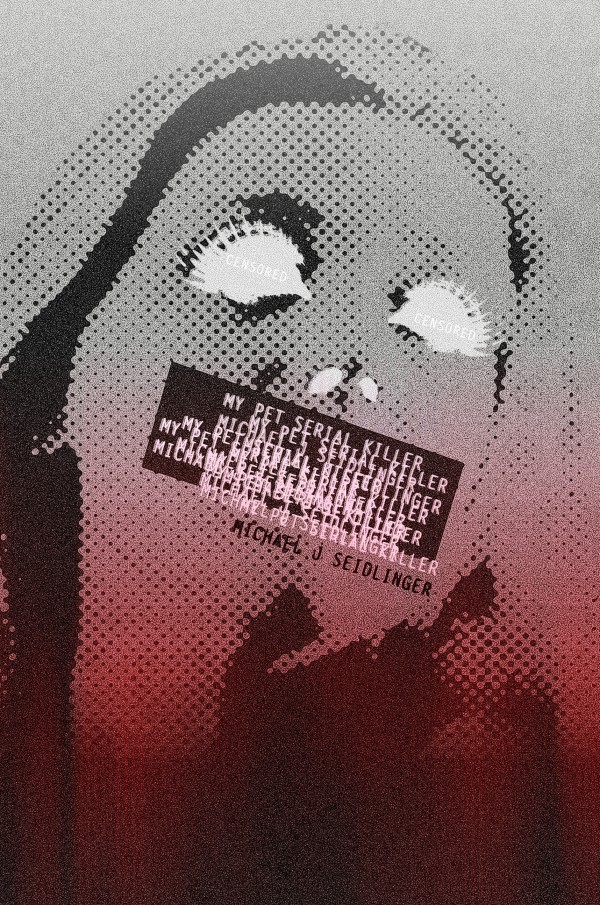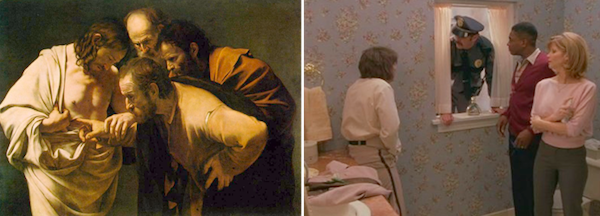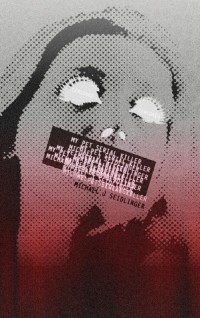
Michael Seidlinger is giving away 5 copies of MY PET SERIAL KILLER, which is out today. Comment to enter, check back in a week to see if you won, you know the drill:
If any serial killer could “be yours”, who would it be?

Michael Seidlinger is giving away 5 copies of MY PET SERIAL KILLER, which is out today. Comment to enter, check back in a week to see if you won, you know the drill:
If any serial killer could “be yours”, who would it be?
Last year I wrote a post, “The 248 Best Movies of 2011,” where I tallied all the film data reported at the site Year-End Lists, which reports critics’ year-end lists for movies, music, and books. Film critics surveyed include Andrew O’Hehir, A.O. Scott, Dennis Cooper, J. Hoberman, John Waters, Kenneth Turan, Manohla Dargis, and Roger Ebert, as well as journals like the A.V. Club, Cahiers du Cinéma, Film Comment, and Sight & Sound. The site also reports on the accolades dished out by various organizations and critics circles.
Since 2012 is now mostly a matter of record, I once again tallied things up, in order to see how critics have already begun to regard the past year. But before we dive into the data, a few caveats:
Again, keep in mind that this is all pretty relative. I also won’t claim that we’re sampling all the data we should be sampling; I just went with what’s at the Year-End Lists site. Also, note that a strong bias was given to English-language critics, especially US-based ones—but that, my friends, is the data to which I have the readiest access.
Caveats aside, however, the results strike me as representative of the cinematic zeitgeist c. January 2013. Because without doubt, the two films from 2012 that I’ve seen critics talking the most about have definitely been—
“I think my sense of style is evolving.”
“I don’t really have goals as far as, I want to be on a cover or something like that.”
“I play into the perception of me, but it’s not really me.”
“I am hands-on in any project that I am associated with. I just don’t want to put my face or name and lend it to a product that I’m not behind a hundred percent.”
“I always say you shouldn’t weigh yourself. I don’t even have a set of scales in my house.”
“I am fascinated by crime scene investigating. I swear, I wish I was a crime scene investigator sometimes!”
“Botox to me is not surgery.”
“I am really cautious about what I say and do.”
“I want to be a vampire. I kind of want to be evil.” READ MORE >

Caravaggio’s The Incredulity of Saint Thomas (c. 1602), known colloquially as “Doubting Thomas,” shows the titular Apostle incredulously putting said incredulity to rest upon sticking his finger inside Jesus’ wound after his resurrection (whose phonetic ties to “erection” may be our first mouthful of phallicy). Jesus says, “Blessed are those who have not yet seen and yet have believed,” a somewhat snarky comment directed at the proof contingency of Thomas. God, a prick in my book, denies the Virgin Mary any clitoral or vaginal stimulation, deferring to the “divine agency” of his bodiless baby batter. Anal seemed out of the question as well. Their son Jesus is likewise denied carnal knowledge with his own Mary (Magdelene), our codependent threesome the world’s first dysfunctional family. I’ve always found Jesus’ loin cloth a sunken concavity, almost tucked-in in trying perhaps to be a daughter. Emasculate comes from the latin emasculare, meaning castrate, fortunately used in a figurative sense. Ben Stiller’s comedic and dramatic qualms in Meet the Parents, Reality Bites, Greenberg, and There’s Something About Mary all tell the story of a dude’s trouble either getting or holding on to the girl. It’s bro humor, but not of sexual entitlement, rather, feminine-like worry and desire for love. Zoolander may even have a touch of peer misandry, and I find Stiller’s work “cutting edge” when it comes to chronic castration anxiety. Back in Rhode Island, in which most Farrelly brothers films are set, Mary’s mother and step-father, along with a doubting cop, cannot believe what Ted Stroehmann did to his “frank” and “beans” until they see it. Here the Farrelly brothers cut to the proof, in the unedited version at least.
Pyramids. The only desirable tombs. Monoliths, obelisks, this ancient geometry of form. The way energy floats, fuck the new age bullshit sometimes you cannot deny that this is reality. The scent of immortality. Endless lust buried in this cold earth. Aesthetics as holy gods. No competition, only artifice. Beautiful, beautiful artifice. Something to look forward to. Something accountable. My own private structural system. Cold night howls. The expulsive glossolalia’d voice; I AM GOD.1
It’s time we cut out the bullshit. It’s time we start making something that either lifts us into the air. Accelerate through fiction and into a new reality. Nothing is perfect but it can always be new.
1#45, excerpted from Errors; or Dreams I’ve Never Had

Jennifer L. Knox is currently curating a super fucking spectacular series of essays on women in cinema over at the consistently awesome Delirious Hem.
Here is a list of the writers and films, which includes Laura Carter on Desperately Seeking Susan, Carrie Lorig on Divine Horsemen, Gina Abelkop on Meek’s Cutoff, Danielle Pafunda on Jennifer’s Body, and many, many more.
Here is an explanation of its inception.
Here is Becca Klaver’s “Teaser Guide” to the series.
And here are the contributions thus far.
Kirill Medvedev was born in Moscow in 1975. In addition to writing, he has translated, written critical essays on contemporary Russian literature and politics and their “bloody crossroads”, run his own bare bone publishing house, and organized opposition against Putin.
His first book of poems, Vse Plokho (Everything’s Bad or It’s No Good) appeared in 2000; his second book Vtorzhenie (Incursion) combined poetry and essays on subjects ranging from 9/11 to the vocabulary of pornography. Soon, thereafter, fed up with Moscow’s intellectuals acquiescence with Putin’s stabilization (or, as he might say, pacification), he went into “internal exile”—renouncing all contacts with literary life, whether publishing, readings, or roundtables or even claiming copyright for his writings. While continuing to post his poems and essays on his website and Facebook page, he has channeled his considerable energy into publishing (mainly canonical leftist criticisms of capitalism, well known in the West but not in Russia), political activity as part of the small socialist movement Forwards (Vpered) and taking to the streets to challenge Putin’s regime together with a few supporters holding handmade signs.
In It’s No Good, Keith Gessen brings together a representative sample of Medvedev’s diverse ouvre. Selections of poems from his two collections and later works as well as of his essays are preceded by Gessen’s extensive introduction to Medvedev, the poet and, equally importantly, Medvedev the critic of literature, the literary establishment, and Russia’s stunted politics. We learn how Gessen discovered Medvedev’s poetry and political writing and how it downed on him that Medvedev had very important things to say to him and to his New York friends who were trying to confront the inequities of capitalism in their own backyard. The collection, an obvious labor of love, works effectively at many levels and will surely widen the circle of Medvedev’s admirers in this country. Would it be wishful thinking that it will also, as if by ricochet, do it for Medvedev in Russia?
When someone says, “Flash fiction is popular because of the internet, kid’s attention span these days…” why don’t you kick them right in the balls? Why don’t you sweep the leg for me?
Peter Altenberg lived from 1859-1919. Adolf Loos, the famed modernist architect, made the cross for his grave.
You like blurbs? Check these fucking blurbs. You wish. This isn’t your mom’s pal or former teacher or little Internet buddy in an indie/alt scene circle-jerk let’s get drunk at AWP and wear skinny, colored eyeglasses type of blurb, you fuckers. This is Kafka going, “In his small stories his whole life is confirmed” and oh, Thomas Mann going, “If it be permitted to speak of ‘love at first sound,’ then that’s what I experienced in my first encounter with this poet of prose.”
Kafka just blurbed your ass. Get it?
Altenberg quit everything. Law school, medical school, book-selling. His own name. He got a doctor’s note, he did, a doctor’s note excusing him from life. A golden ticket. He spent the rest of his days in bars, coffee bars and good old regular bars. He liked drinking and whores, just like anyone with time on their hands.
He wrote about it, this life, in fits of brevity.
You should probably start here and then just learn to read German afterwards.
 My Pet Serial Killer
My Pet Serial Killer
by Michael Seidlinger
Enigmatic Ink, 2013
316 pages / $13.99 buy from Amazon
Rating: 8.8
My Pet Serial Killer is an honest look at relationships. Yes it may be surprising that it took a main character that disembowels unsuspecting women to explore the power dynamic that exists between any two people in a relationship. That’s just how Seidlinger operates. Seidlinger is the sickest of the fucks. Few can compare. What’s doubly refreshing, though, is exactly what is left in and out of the book. Occasional gory details make their way through the passages (how a person tastes like cinnamon, etc.) but the main focus is the relationship between the killer (Victor) and the observer (Claire). READ MORE >
J R
William Gaddis
Alfred A. Knopf, 1975
726 pages / $15.16 buy from Dalkey Archive or Amazon
By July I’d completed my yearlong ramble through DeLillo’s oeuvre. It was not one of the hottest summers I remember. I had a room in Crown Heights with a window that faced out to an alley, across which lived a Barbadian family, whom I was awoken by most mornings before biking the six miles, across Brooklyn, over the Manhattan Bridge, through Chinatown, to the parking lot behind the business school next to the library, where I rode the elevator to the tenth floor and worked for eight hours Monday to Friday. I had little idea or direction of what to do next.
I read Wittgenstein’s Mistress in about two sittings, during which I came to vaguely understand the significance of the name William Gaddis. All I knew when I dropped down to the eighth floor one afternoon to pick up the massive copy of The Recognitions was that it included a character who wore a clock as a necklace. The image appeared throughout Markson’s insane novel and recalled Flavor Flav, the refurbished and culturally derided figure of the preceding decade, which seemed enough for me.
It took me three attempts to get through the first ten pages. I’d decided with a friend that we would tackle it simultaneously, but he gave up a quarter way through the first chapter. He explained that he didn’t have any interest in dedicating his respite to a man baptized by Jonathan Franzen as “Mr. Difficult.” As a matter of contention or cultural superiority, or, more likely, personal superiority, I committed to reading the novel to completion and full understanding.
I did so, along the way reveling in what I referred to as the most conscious and hilarious diatribe on art ever penned. I was indoctrinated; by what I read, I found myself deeply shaken and moved.
A month passed. I signed a lease on an apartment with my girlfriend in a neighborhood that used to be a part of Flatbush but is now called Prospect-Lefferts Gardens and enrolled in my penultimate semester of college. I reread Hamlet and Heart of Darkness and The Waste Land. I read for the first time A Portrait of the Artist as a Young Man and Ulysses and “Ulysses” and “Prufrock” and Castle Rackrent. I had few conversations about Gaddis. I went out constantly for a few weeks and stopped. There was the hurricane and I walked across the Manhattan Bridge through a city without electricity to Madison Square Garden. I read Ben Gocker’s absurdly funny Content publication The Pisces on a bus from Philadelphia on three hours of sleep. I felt tired of writing. The insanity of the world seemed more sane. I was bored, watched hours of television. I still do. I’m still bored. And I thought, I think about The Recognitions regularly as this masterpiece of social and artistic criticism, the most effort ever poured into something’s message, which stands to say: It’s not worth it.